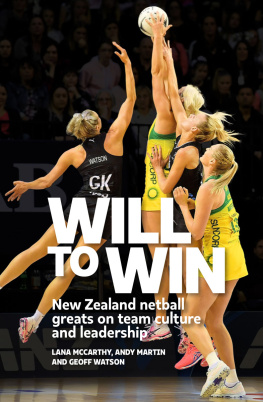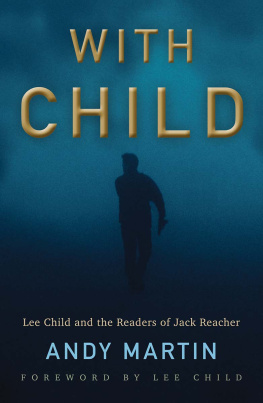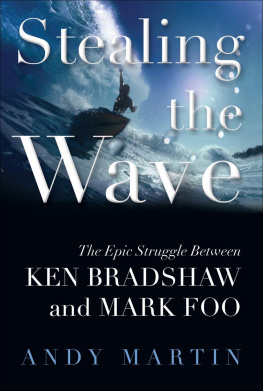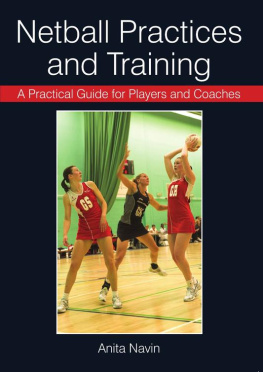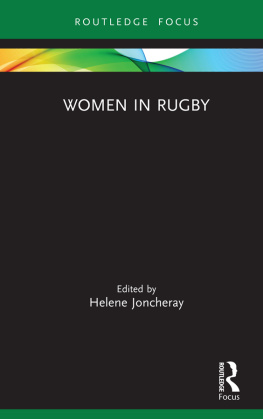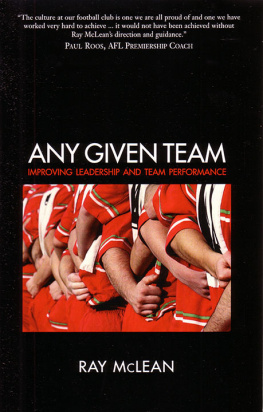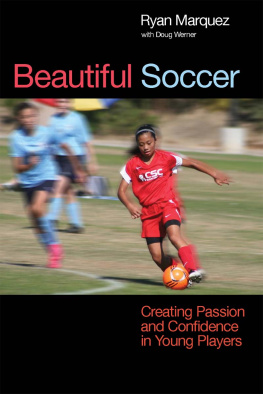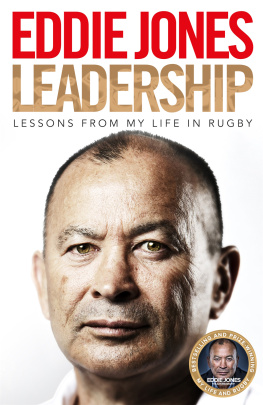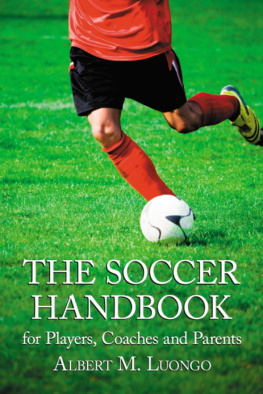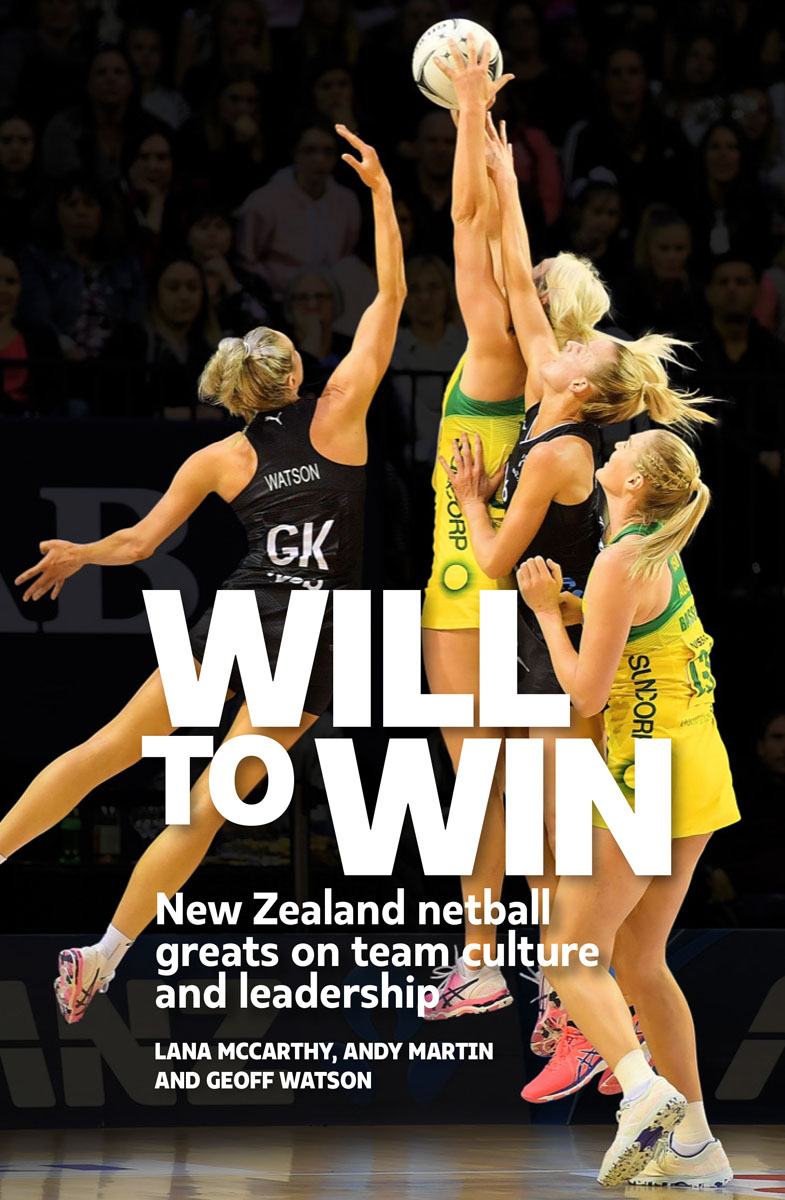


A netball match between Nelson and West Coast in 1947, at the 18th Dominion Tournament held in Nelson. Netball New Zealand
Contents

The Silver Ferns celebrate winning the 2019 World Cup by beating Australia in the final by one goal. Michael Bradley
INTRODUCTION
Rivalry, resilience and redemption
The Silver Ferns are New Zealands national netball team. The team name originates from the silver underside of the leaves on the tree fern Cyathea dealbata, an iconic symbol for many New Zealand sports teams. Historically, the Silver Ferns have been one of the top two national netball teams in the world. They have qualified to compete at every World Netball Championships (initially known as the World Tournament, now World Cup) since its inauguration in 1963, and at every Commonwealth Games since the inclusion of netball in 1998. They have won the World Championships five times (1967, 1979, 1987, 2003 and 2019) and won the World Games title in 1985 and 1989. They also won gold medals at the Commonwealth Games in 2006 and 2010.
However, the 80-year history of the fierce rivalry between the Australian Diamonds and the Silver Ferns has long favoured the Australians. At the end of the 2019 season, the Australians had won 95 of the 151 international matches between the two nations, with New Zealand winning 54 and two games being drawn (see closest rivals, the one-point loss was gut-wrenching. On top of this came a double-overtime loss to the Diamonds in the 2002 Commonwealth Games final, with McMahon again shooting the winning goal.
The following year, however, the Silver Ferns won the Netball World Cup, breaking the Diamonds 16-year winning streak and gaining redemption for the losses in 1999 and 2002. And in 2019by which time the Diamonds had built up another 16-year unbeaten streakthe Ferns won the World Cup again with a thrilling one-point victory in Liverpool. The Silver Ferns had been vilified in the press for their performance at the 2018 Commonwealth Games, when there were plenty of tears and questions after their 6055 loss to Jamaica robbed them of a medal. A week earlier, they had suffered their first ever defeat to Malawi. In 2019, however, Casey Kopua (ne Williams) came out of retirement, Laura Langman was finally handed an exemption from Netball New Zealands selection policy for playing in Australia, and Katrina Rore (ne Grant) returned to the team, having initially missed selection after captaining the unsuccessful 2018 Commonwealth Games campaign. Star shooter Maria Folau (ne Tutaia) was also instrumental to the teams success, despite the distraction of her husband, Israel Folaus, very public sacking by the Australian Rugby Union for his comments on social media. However, it was Noeline Tauruas appointment as coach that provided the perfect storm, and the catalyst for what had appeared an unlikely win just months before.
Commenting on that win, netball coaching legend Dame Lois Muir opined that the Australians think they walk on water, but really, they were catching up all the time. New Zealand were sort of controlling that game, and that was a great feeling to have.
Rivalry, resilience and redemption are the key themes that stand out in this book. Will to Win is, we hope, an insightful examination of the traditions, team culture, leadership and coaching styles that have evolved over the years through the eyes of some of the great Silver Ferns coaches and captains. Interviewees were asked to reflect upon how they heard about their selection, the team induction process, symbols, rites and rituals, values and beliefs. The emphasis on winning and the rivalry with Australia were also explored. They were also asked to highlight some of the external environmental factorspolitical, economic, sociocultural and technologicalthat have influenced the teams development.
The first section reflects on personal perspectives on netball. The second features interviews with captains and coaches over the period from 1960 to 1987. This era saw many significant changes and developments, such as the introduction of a set of international rules in 1961. In 1974 Lois Muir took over as coach, which began the most successful period in New Zealand netballs international history. The third section covers the period between 1988 and 2001, which involved rebranding and commercialisation, with a far greater involvement from sponsors. The association changed its name in 1991 and became known as Netball New Zealand, while also adopting a new logo, the silver fern, and the national team became known as the Silver Ferns. The fourth section covers the period 200219, which saw the transitioning of netball to athlete-centred semi-professionalism, and even full professionalism for some of the elite players. The final section covers some history of the game in New Zealand, then reflects on some of the key themes of the interviews.
TABLE 1: NEW ZEALAND VS AUSTRALIA, 19382019


Tech Old Girls versus St Marys, Wellington, 1955. Alexander Turnbull Library, EP/1955/1237-F
PART 1
A love of netball
LANA McCARTHY
Dr Lana McCarthy has spent the past 10 years in the sport, education and coaching sector in various roles, including as a registered health and physical education teacher, a netball development officer, a regional sports advisor, and as a lecturer in physical education.
She was a netball coach for a range of high-performance New Zealand netball teams, spanning secondary school, Under 17, Under 19 and Under 23 level. She undertook research for her masters thesis with the Northern Mystics ANZ Championships netball team in 2014, on the development and importance of establishing team culture and leadership within sports teams. This led to a PhD investigating team culture, leadership and coaching styles, and the ways in which captains and coaches have constructed the culture within the Silver Fernsthe first study of its kind in New Zealand.
Players need to be able to think for themselves, make split-second decisions and act upon these decisions with confidence and self-assurance, taking responsibility for their own actions.
L ike thousands of other young netball players in New Zealand, I grew up with aspirations of one day playing for the Silver Ferns. I would watch my idol Bernice Mene and hope that one day I would play goal defence for the Silver Ferns just like her. I have countless childhood memories of watching televised games of the Ferns playing against the Australian Diamonds, with victory often impossible to predict until the final seconds. I also remember being glued to the television and witnessing momentous moments in the history of the game, such as the one-goal loss to Australia in the dying seconds of the 1999 World Netball Championships in Christchurch, or the epic moment when Temepara George (now Bailey) was sent off during the final of the World Cup in 2003and the Silver Ferns got their revenge by reclaiming the trophy, and the title as the worlds top-ranked netball team.
Next page
